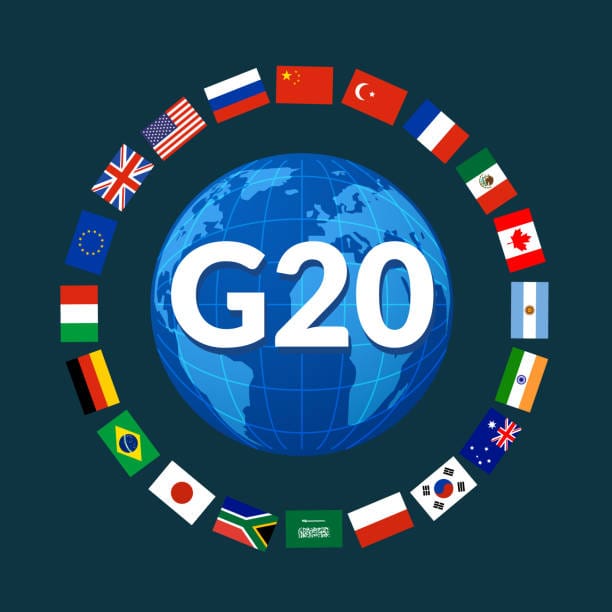An essential forum for tackling global issues and promoting international collaboration is the G20 Summit, which brings together the world’s leading economies once a year. The G20, which represents two-thirds of the world’s population, 85% of the global GDP, and 75% of international commerce, is crucial in determining the direction of future international policy. Here, we examine the main conclusions, recurring themes, and importance of the most recent G20 Summit.
What is the G20?
The European Union and 19 other nations make up the Group of Twenty (G20), an intergovernmental forum. The G20 was first formed in 1999 with a focus on financial and economic challenges, but it has subsequently broadened its purview to include topics related to gender parity, public health, climate change, and digital transformation. Major economies including the US, China, India, and Germany are among its members, as are developing nations like Brazil, South Africa, and Indonesia.
Key Themes of the 2024 G20 Summit:
- Climate Action:
With an emphasis on carbon neutrality and sustainable energy transitions, the G20 reaffirmed its commitment to the Paris Agreement. Innovative funding for climate resilience, especially for poor countries at risk from climate change, was the main topic of discussion.
- The shift to digital
As artificial intelligence and digital economies grow, the summit’s main objectives were to improve global digital connections and create moral standards for AI use. Additionally, efforts to close the digital gap were given top priority.
- Stability of the Economy:
The G20 emphasized the significance of coordinated fiscal policies, debt restructuring for poorer nations, and promoting international commerce in the face of global economic instability.
- World Health:
Important topics of conversation were post-pandemic healing and readiness for next health emergencies.
India’s Leadership in 2023:
An important turning point in the history of the G20 was India’s 2023 chairmanship. India focused on inclusion, sustainability, and international collaboration under the theme “Vasudhaiva Kutumbakam” (One Earth, One Family, One Future). The leadership prioritized tackling urgent problems such as economic inequality, technology transformation, and climate change.
India raised awareness of the issues facing poor countries by advocating for the Global South. Efforts to advance renewable energy, mobilize climate funding, and improve global internet infrastructure were among the major endeavors. India reaffirmed the significance of sustainable development and fair growth with these measures.
Outcomes and Agreements:
Key Outcomes
- Addressing Climate Change
The G20 countries pledged to boost funding for sustainable infrastructure and renewable energy. Meeting the objectives of the Paris Agreement and attaining a green global recovery are the main goals of this endeavor. The funding of climate adaptation initiatives for nations that are at risk was given particular attention. - Reduction of Debt in Developing Countries
An agreement to restructure low-income nations’ debt was reached at the summit. The goal of this program is to reduce economic strains and free up these countries to concentrate on their top development goals. - Preparation for Global Health
Leaders stressed the necessity of global health changes in response to the lessons learnt from the COVID-19 epidemic. They reached a consensus on how to increase pandemic readiness and guarantee fair vaccination distribution, especially for disadvantaged groups. - Public Infrastructure in Digital Form
A Digital Public Infrastructure (DPI) framework was established to encourage safe and equitable technology advancement. The agreement emphasized how crucial it is to close the digital gap and promote innovation in order to boost the economy
Notable Agreements:
1.Green Development Pact
2.Economic Growth and Stability
3.Ethical Use of Artificial Intelligence (AI)
4.. Digital Public Infrastructure Framework
5.Food and Energy Security Measures
The G20 Summit’s decisions and results show how important the conference is in shaping policies that affect billions of lives globally. The prosperity of nations in the future will be largely dependent on how well these agreements are implemented.”









